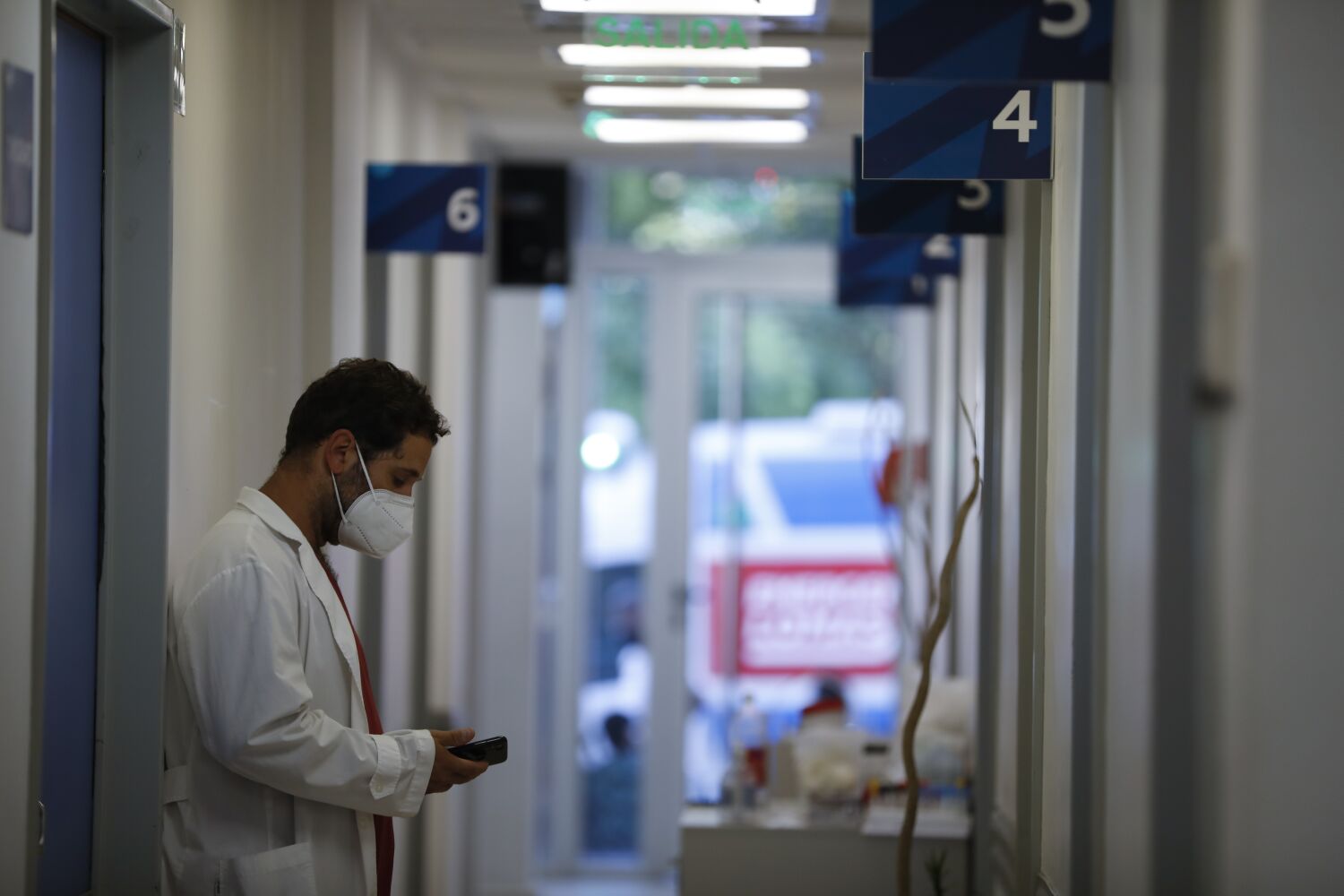Harassment is routine for docs, scientists on social media
[ad_1]

It started with life-saving recommendation within the midst of the pandemic. It ended with loss of life threats.
“After I posted an image of myself with my badge in my white coat after my COVID-19 vaccination I obtained tons of of harassing anti-vaxx messages together with loss of life threats.”
The medical skilled on the receiving finish of these threats was hardly alone. A brand new survey of physicians and biomedical scientists within the U.S. discovered that almost two-thirds skilled harassment on social media in the course of the COVID-19 pandemic.
Professional-vaccine messages have been a typical goal of on-line vitriol. So have been posts that endorsed the usage of face masks or promoted public well being generally. Survey respondents stated in addition they provoked ire by advocating for abortion entry and firearm security, researchers reported within the journal JAMA Community Open.
“[I] have been inspired to commit suicide throughout a debate on gun violence and restrictions.”
The harassment got here in lots of types. Along with violent threats, the docs and scientists stated, their medical practices have been slammed with bogus affected person evaluations, their attackers campaigned to get them fired, their private data was shared on-line, and their faces have been pasted onto photographs of porn fashions.
Researchers used Twitter to ask physicians, biomedical researchers and trainees to take the nameless social media survey in the summertime of 2022, when the pandemic had largely receded into the background. A complete of 359 eligible folks accepted. Among the many respondents, 81% have been between the ages of 25 and 54, 57% have been girls, 28% have been folks of colour, and 21% recognized as a gender or sexual minority.
In virtually each demographic, greater than half of the respondents reported on-line harassment of some variety. The exceptions have been folks 65 and older (44% of them skilled on-line harassment) and individuals who didn’t talk about public well being points on their social media accounts (39% have been harassed anyway).
Biomedical professionals had been utilizing social media for years earlier than the pandemic got here alongside, stated examine co-author Dr. Tricia Pendergrast, a first-year resident in anesthesiology on the College of Michigan. The platforms helped them increase their profiles, tout their analysis, entice collaborators and unfold useful well being messages to the general public.
Some survey respondents stated the pandemic prompted them to spend extra time on social media so as to unfold factual data, because the U.S. Surgeon Normal inspired them to do.
“Previous to the pandemic social media was simply me goofing off. As misinformation grew, I discovered myself constantly tweeting out data or retweeting tweets to appropriate misinformation. After all, that led to elevated harassment, particularly as a Black lady scientist.”
Dr. Vineet Arora, the dean for medical training on the College of Chicago Drugs, stated the harassment was prompted partially by the frequent updating of skilled recommendation.
“As [researchers] have discovered extra in regards to the pandemic, modifications to protocols have been made, and I believe there’s been a number of confusion round that,” stated Arora, the examine’s senior creator.
Arora stated she believes the fast shifts in analysis and security suggestions made it straightforward for misinformation to unfold and for folks to lose confidence in these with medical experience. Their frustration grew into anger directed at physicians, scientists and medical professionals, primarily via social media platforms.
“I’ve over 30 threats to rape, kill, or assault me posted to Twitter, Reddit, and personal web sites. I’ve misplaced depend of the variety of regulation enforcement studies I’ve made, however the accounts that take advantage of direct threats are at all times nameless.”
Although the pandemic has escalated harassment in opposition to docs and scientists, it definitely didn’t create it. A survey of U.S. physicians performed in early 2019 discovered that 23% skilled some type of on-line harassment in response to their public well being advocacy. Within the new survey, 66% of docs and scientists reported harassment of some variety.
The pandemic could also be over, however the abuse is certain to proceed, Pendergrast stated. There are many different polarizing points associated to medical care, together with abortion entry and gender-affirming care, she famous.
“[I] can be very reluctant utilizing public account to take controversial positions as I don’t need work censure or to be harassed at residence or in my personal life. I’ve small youngsters at residence to guard.”
The focusing on of marginalized teams is of explicit concern, “particularly at a time when their voices are wanted most,” stated Pendergrast, who was a medical pupil at Northwestern College when the survey was performed. She fears that except establishments or social media corporations intervene, the harassment will proceed.
“How will we invite these teams into these areas, understanding it’s not secure for [them] to be there?” she stated. “It’s actually irritating that that is the case proper now.”
Continued harassment of medical professionals could drive folks from the sector altogether, stated Heidi Tworek, director of the Centre for the Research of Democratic Establishments on the College of British Columbia, who was not concerned with the examine.
Virtually half of U.S. healthcare employees reported experiencing burnout in the course of the pandemic, and a majority have severely thought-about leaving — or have left — the medical discipline, Tworek stated. In one other ominous signal, the variety of college students making use of to emergency drugs packages within the U.S. has plunged 26% within the final two years, based on the Nationwide Residency Matching Program.
“A number of medical college students watched their advisors, mentors and colleagues put themselves in danger on the entrance line of COVID and have been then met with such anger, violence and harassment,” Pendergrast stated. “It affected all of us.”
In an unsurprising improvement, the examine authors obtained harassing comments on Twitter after their analysis was revealed.
“Nobody is secure from on-line harassment,” stated examine chief Dr. Regina Royan, an emergency doctor at Northwestern College.

